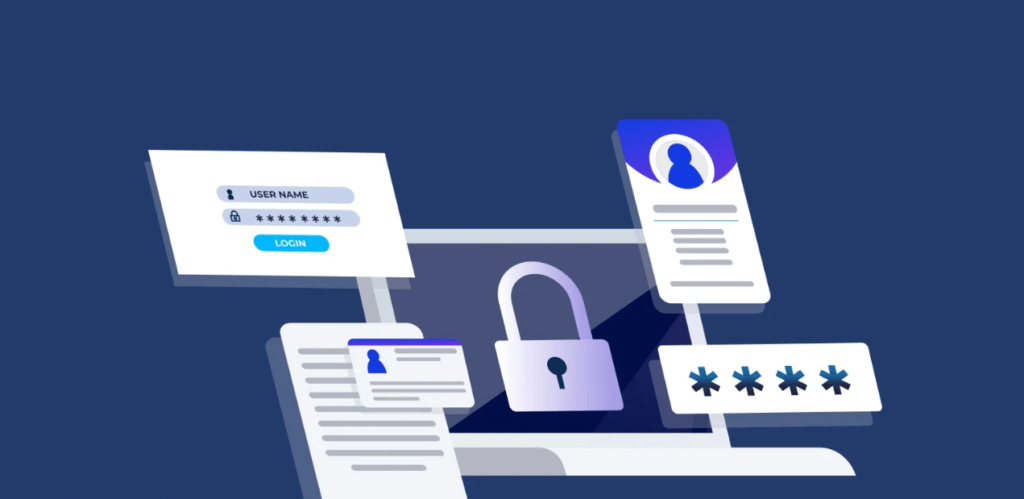Small businesses are particularly vulnerable to cyberattacks in the current digital era. Smaller businesses frequently lack the cybersecurity infrastructure and resources necessary to defend against cyberattacks, in contrast to major organisations. By taking advantage of these weaknesses, hackers can ruin operations, steal confidential data, and cause financial harm. Small firms can, however, take a number of precautionary measures. Businesses may lower risks and safeguard their assets by recognising the different kinds of attacks and putting preventative business measures in place.
Table of Contents
1. Understand the Cyber Threat Landscape

Understanding the many types of cyberthreats is the first step in defending against them. Typical cyberthreats consist of:
Phishing Attacks: Hackers use phoney emails or websites to fool staff members into divulging private information.
Ransomware: Until a ransom is paid, malicious software prevents users from accessing their systems.
DDoS Attacks: Attacks known as Distributed Denial-of-Service (DDoS) overload a company’s internet services, making them inoperable.
Insider Threats: Employees may inadvertently or purposely handle sensitive data improperly, leading to security breaches.
Businesses can identify vulnerabilities and take proactive measures to mitigate them by keeping up to date on the various attack types.
2. Invest in Robust Security Software

Protecting small businesses from cyberattacks requires security software. Threats can be found and eliminated before they become more serious with a multi-layered security solution that includes intrusion detection systems, firewalls, and antivirus software. To protect against the most recent attacks, companies should also make sure that their security software is updated on a regular basis. The proper amount of protection can be obtained without going over budget by investing in solutions designed specifically for smaller businesses. Small companies ought to look for solutions that provide:
Real-time monitoring to detect suspicious activity,
Data encryption to secure sensitive information, and
Automatic updates to keep systems current.
3. Educate Employees on Cybersecurity Best Practices
One of the main reasons for security breaches is human mistake. Workers frequently use weak passwords, download harmful attachments, and fall for phishing emails. The likelihood of a successful cyberattack can be considerably decreased by putting personnel training programs into place.
Training should cover topics like:
Recognizing phishing attempts,
Creating strong, unique passwords, and
Securing devices when accessing company data remotely.
Furthermore, companies should help staff members embrace a “zero-trust” mentality by making sure they always confirm identities before allowing access to important systems.
4. Utilise Multi-Factor Authentication (MFA)
Beyond using simple passwords, multi-factor authentication (MFA) adds an additional layer of security. Before users can access their accounts, MFA requires them to submit two or more verification methods, such as a password and a one-time code that is texted to their mobile device. Even if hackers manage to get their hands on login credentials, this makes it far more difficult for them to achieve unauthorised access. Enabling multi-factor authentication (MFA) on email, financial systems, and other critical platforms is a cost-effective and efficient method for small organisations to improve cybersecurity.
5. Regularly Backup Data
For small firms to recover swiftly from a cyberattack, data backups are essential. Regular backups guarantee that data may be restored in the event of a ransomware attack or system failure without requiring expensive ransom demands or erasing important data.
Businesses should:
Use automated backup solutions to ensure consistent updates,
Store backups in secure, off-site locations, and
Test backups regularly to confirm they are working correctly.
6. Implement Strong Password Policies

Cybercriminals can gain access to weak passwords. Strong password standards that require employees to utilise intricate letter, number, and symbol combinations should be enforced by businesses. The risk of breaches is further decreased by using password managers to safely store credentials and by changing passwords on a regular basis.
7. Establish Incident Response Plans
Regardless of a company’s level of security, cyberattacks can still occur. An incident response plan guarantees that the company can react promptly to an attack and limit damage. The response plan should include:
Designated roles and responsibilities for key team members,
Steps for isolating and containing the breach, and
Communication plans for notifying customers and stakeholders.
Businesses can minimise long-term damage and respond quickly to an assault by having a well-thought-out incident response strategy.
8. Adopt Preventative Business Measures
Small businesses should act now rather than waiting for an assault to occur. Rather, businesses need to fortify their defences by implementing proactive business initiatives. Vulnerabilities can be found before hackers do by conducting routine security audits and assessments. A review of data handling protocols, personnel behaviour, and security software should all be part of these evaluations. Outsourcing IT security to experts who can keep an eye on systems and react to attacks around-the-clock is another way to take preventative action. Without using excessive internal resources, managed security service providers (MSSPs) provide small enterprises with an affordable solution to guarantee the security of their networks.
Conclusion
Although cybersecurity is a constant concern, small businesses may protect themselves against attacks by being aware of the dangers and putting the necessary plans in place. Important precautions include purchasing security software, training staff, implementing MFA, and performing frequent backups. Businesses may stay ahead of the curve and concentrate on expansion without worrying about devastating cyberattacks by implementing preventative business measures as well. Even the smallest businesses may provide a safe online environment if they take the initiative.




